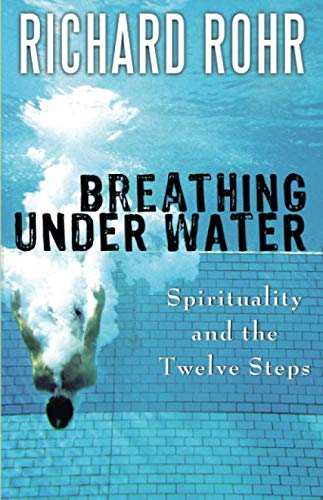Step 12: Having had a spiritual awakening as the result of these steps, we tried to carry this message to alcoholics, and to practice these principles in all our affairs.
Scripture for Sunday: Matthew 10:5-14
5 These twelve Jesus sent out, instructing them, “Go nowhere among the Gentiles and enter no town of the Samaritans, 6 but go rather to the lost sheep of the house of Israel. 7 And proclaim as you go, saying, ‘The kingdom of heaven is at hand.’ 8 Heal the sick, raise the dead, cleanse lepers, cast out demons. You received without paying; give without pay. 9 Acquire no gold or silver or copper for your belts, 10 no bag for your journey, or two tunics or sandals or a staff, for the laborer deserves his food. 11 And whatever town or village you enter, find out who is worthy in it and stay there until you depart. 12 As you enter the house, greet it. 13 And if the house is worthy, let your peace come upon it, but if it is not worthy, let your peace return to you. 14 And if anyone will not receive you or listen to your words, shake off the dust from your feet when you leave that house or town.
Notes on the Text:
According to this Gospel, Jesus had been teaching, proclaiming, and curing. He then extended his authority to the 12 disciples to go out and help people by proclaiming the good news and curing the unclean spirits that were the source of their illness. Exorcisms are difficult for us to relate to today, but at the time of Jesus, there was a common understanding that evil was not just within people but also outside of people. Marcus Borg writes this, “Whatever the modern explanation might be and however much psychological or social factors might be involved, it must be stressed that Jesus and his contemporaries (along with people in most cultures) thought that people could be possessed or inhabited by a spirit or spirits from another plane. Their worldview took for granted the actual existence of such spirits. Perhaps the shared convictions were in part responsible for the phenomenon. In any case, they did not simply think of these as cases of possession and exorcism; rather, all of the participants—possessed, exorcist, onlookers—experienced the event as an exorcism of a spiritual force that had taken possession of the person…Jesus was a healer and an exorcist… In all likelihood, he was the most remarkable healer in human history.” Another way of looking at exorcisms is to focus on the Kingdom of God which Jesus was proclaiming and which challenged the kingdoms of the world and their dominion. Jesus was seeking to heal the entire social order where the poor and the peasants had suffered so much under the oppression of the kingdoms and ruler of the time. One of the best works on understanding the political nature of Jesus’ ministry is Ched Myers’ book Binding Up the Strong Man: A Political Reading of the Gospel of Mark. Here is what Myers writes about Jesus’ encounters with demons, “From the moment he strides into a Capernaum synagogue, it becomes clear that Jesus’ kingdom project is incompatible with the local public authorities and the social order they represent. A ‘demon’ immediately demands that Jesus justify his attack upon the authority of the scribal establishment; Jesus vanquishes this challenge.” (Myers, 137)
The reference to “lost sheep of Israel” goes back to Matthew 9:36 where Jesus was talking about the poor and the peasants who had no leaders to take care of them. They were supposed to go out and do all of this without relying on their own resources, but on the hospitality and generosity of those they encountered. Jesus did not want the disciples to act like the rulers and oppressors did. His approach was very different. It was empowering of those he sought to help. It was supposed to meet on their own terms instead of being forced on them.
Jesus commissioned his followers by sharing in his style of radical ministry. He sent them to live as he lived, being hosted by sympathetic locals, living very simply. They were to do as Jesus did: proclaiming the reign of God and living it by healings and exorcisms and setting the oppressed free. They were to be bearers of the good news in word and deed. What is interesting in this story is that Jesus sent them out early on in their ministry. They had not graduated from his ministry training yet. They had not really figured out their own stuff yet! They were still struggling to really understand his message and that is why Jesus sent them out. Nothing he could have said or done would have helped them be truly prepared for ministry or for relying on God’s power in their lives like being out in the field and facing the powers of the world on a personal experiential level. Every professional knows that. You can study or train to be a lawyer, an accountant, a driver, or a teacher, but unless you get to put your learning into practice, none of it really connects. That is what Jesus was hoping to help his disciples experience from the beginning of his ministry with them. Sharing their experiences of God’s love was an essential part of their own growth.
For Reflection:
Step 12 sounds very similar to what Jesus did with his disciples, commissioning them to go out and share in his ministry of healing the world. This step challenges us to share our faith with others. Yet, this makes a lot of us nervous because when it comes to sharing the message, we have to overcome the narrow ways many Christians have defined “sharing the message.” We tend to imagine people who knock on doors or tell you to turn your life over to Jesus. They are often people who try to make you believe like they do in order to be saved from eternal damnation. These kinds of tactics often turn people off and make us leery of doing the same to others. The big problem with such sharing of the message is that it reduces faith to a moral or a belief system that is exclusive and rigid. It also makes God look like an angry being who is waiting to punish us if we get things wrong. This kind of understanding completely misses the big focus of Jesus on the kingdom of God breaking into our own world here and now. Jesus was mostly focused on healing our world both individually and systemically.
The disciples themselves were common folk who knew firsthand the oppression of the political, social and economic systems of their world. They also were captured by Jesus’ vision of the kingdom of God where justice, mercy, and compassion were to be the norms. That was what they were supposed to proclaim: their own personal experiences of healing through the good news. And that is what we are invited to share.
The path of healing and sharing in AA is very similar to the path of Jesus because the teaching is that you can’t help others by criticizing them or feeling superior to them. You can’t help by trying to persuade someone into your way of thinking. Don’t refer to this book or any other resource, The Big Book says. Don’t use spiritual jargon – use everyday words. Don’t talk about theological terms or concepts or even what church tradition you belong to – that puts the focus on something other than God. Instead, when the time is right, and you’ll know it, the book says, simply and truthfully tell the person you are trying to help exactly what happened to you. When God touches your life and brings you healing, you are invited to share that with others who are seeking healing and whom God puts on your path.
What heals the world is sharing what has healed you. The power of what you share comes from your specific story of awakening to God’s presence in your life. God is already in other people’s lives and hearts. We just need to help each other see that. This is not about convincing someone to believe like you do. It is about sharing how God is transforming your life. Here is a quote that expresses this well from a Presbyterian document for which I wrote a study guide. It is called “Respectful Presence: An Understanding of Interfaith Prayer and Celebration”:
“As Presbyterians we confess Jesus Christ is ‘the way, the truth, and the life’ (John 14: 6). By God’s grace and mercy the Spirit of the living Christ is at work in the world. Where God’s creation is restored, Christ is present and revealed. Where human dignity is maintained, Christ is present and revealed. Where we are urged to receive the stranger, Christ is present and revealed. Where we are led to keep silence and meditate on the saving and healing powers of the Almighty, Christ is present. The truth of Jesus Christ cannot be limited to any single community’s confession…The truth of Christ exposes the arrogance and pride of any community’s claim that it alone receives revelation.”
Step 12 and Jesus challenge us to focus on love and care for others in personal ways. This often defies our society’s obsession with the ego and its needs for superiority, power, control, and esteem.
A Blessing Prayer by Macrina Wiederkehr:
What is a blessing
but a rain of grace
falling generously
upon those who are in need;
And who among us is without need?
May this day be a pathway strewn with blessings.
May your work this day be your love made visible.
May you breathe upon the wounds of those you live and work with.
May your breath be the breath of God.
May your own wounds feel the breath of God.
May you honor the flame of love that burns inside you.
May your voice this day be a voice of encouragement.
May your life be an answer to someone’s prayer.
May you own a grateful heart.
May you have enough joy to give you hope,
enough pain to make you wise.
May there be no room in your heart for hatred.
May you be free from violent thoughts.
When you look into the window of your soul
may you see the face of God.
May the lamp of your life shine kindly upon all who cross your path.
May you be a good memory in someone’s life today. Amen.




